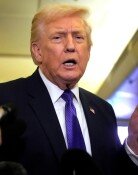S. Korea’s 'red line diplomacy' with Russia should be more refined
S. Korea’s 'red line diplomacy' with Russia should be more refined
Posted June. 24, 2024 08:05,
Updated June. 24, 2024 08:05
"If Russia gives North Korea highly sophisticated precision weapons, what line do we have anymore?" said South Korea's National Security Council chief Jang Ho-jin Sunday, referring to Seoul’s shift towards positive consideration of its arms aid to Ukraine. This is a warning that if Russia provides advanced nuclear and missile-related weapons to North Korea, the South Korean government could provide lethal weapons to Ukraine without restrictions. Regarding the future of South Korea-Russia relations, Jang said, "We cannot manage it alone, and Russia must make a corresponding effort."
With the de facto restoration of the North Korea-Russia alliance following President Vladimir Putin's visit to Pyongyang last week, there has been an intense diplomatic battle over mutual red lines between Seoul and Moscow. In response to the closer-than-expected rapprochement between North Korea and Russia, the South Korean government announced a strong response by warning that it would reconsider its policy of not providing weapons of destruction to Ukraine. In response, President Vladimir Putin has again warned South Korea that it would be a "big mistake" to do so, causing the conflict between the two nations to further escalate.
The South Korean government has consistently stated its policy of not providing weapons of destruction since Russia's invasion of Ukraine in February 2022. Of course, there have been controversies, such as the Kremlin’s immediate verbal protest to President Yoon Suk Yeol's foreign press conferences that hinted at the possibility of arms aid or Seoul’s diversionary aid of filling empty U.S. military ammunition. But Yoon reaffirmed his "firm policy of not providing offensive weapons of destruction anywhere" at a press conference last month, and Putin responded with a friendly "Thank you very much" remark earlier this month.
Russia is completely to blame for the shift of bilateral relations from mutually agreed-upon red lines to a situation of harsh warnings and threats in less than a month. After engaging in a ‘dangerous trade’ amounting to 10,000 containers with North Korea, Russia has flaunted its alliance-like closeness and even threatened absurdly to launch a counterattack against the South Korean government for protesting such a move. Putin's appeasement message a few days ago has thus been found to be a deceitful ploy to stab us in the back.
However, Seoul must also ask itself whether it was misled in the process. Although painful, the government should accept the criticism that President Yoon's ‘firm policy’ was reversed within a month while attempting to make up for its intelligence failure. The 'red line diplomacy' will continue as South Korea and Russia are at loggerheads, but neither wants to see a collapse in bilateral relations. In the future, depending on the global situation, the situation in Ukraine, and the North Korean nuclear situation, Seoul’s strategy and the red line may change. Seoul’s diplomacy should become more refined and sophisticated.







